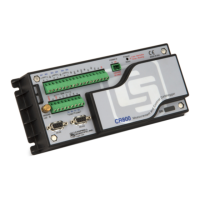Section 8. Operation
• FTPClient()
8.7.3.4 Settings — Passwords
Settings, which are accessible with DevConfig (p. 103), enable the entry of the
following passwords:
• PPP Password
• PakBus/TCP Password
• FTP Password
• TLS Password (Transport Layer Security (TLS) Enabled)
• TLS Private Key Password
• AES-128 Encrypted PakBus Communication Encryption
(p. 405) Key
See the section Status, Settings, and DTI (Registers
(p. 107)) for more information.
8.7.4 File Encryption
Encryption is available for CRBasic program files and provides a means of
securing proprietary code or making a program tamper resistant. .CR<X> files,
or files specified by the Include() instruction, can be encrypted. The CR800
decrypts program files on the fly. While other file types can be encrypted, no
tool is provided for decryption.
The CRBasic Editor encryption facility (Menus | File | Save and Encrypt)
creates an encrypted copy of the original file in PC memory. The encrypted file
is named after the original, but the name is appended with "_enc". The original
file remains intact. The FileEncrypt() instruction encrypts files already in
CR800 memory. The encrypted file overwrites and takes the name of the
original. The Encryption() instruction encrypts the contents of a file with
AES128 encryption, and decrypts a file created with encryption provide the
correct encryption key is entered.
One use of file encryption may be to secure proprietary code but make it available
for copying.
8.7.5 Communication Encryption
PakBus is the CR800 root communication protocol. By encrypting certain
portions of PakBus communications, a high level of security is achieved.
8.7.6 Hiding Files
The option to hide CRBasic program files provides a means, apart from or in
conjunction with file encryption, of securing proprietary code, preventing it from

